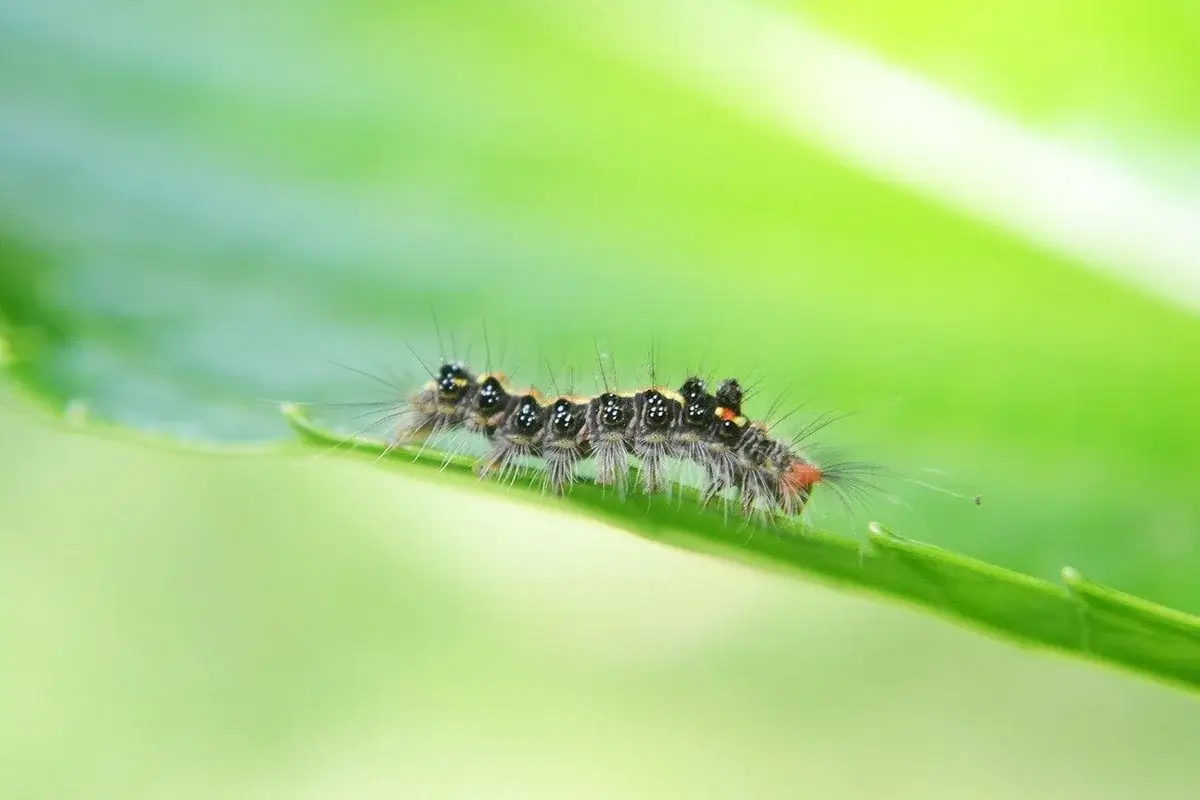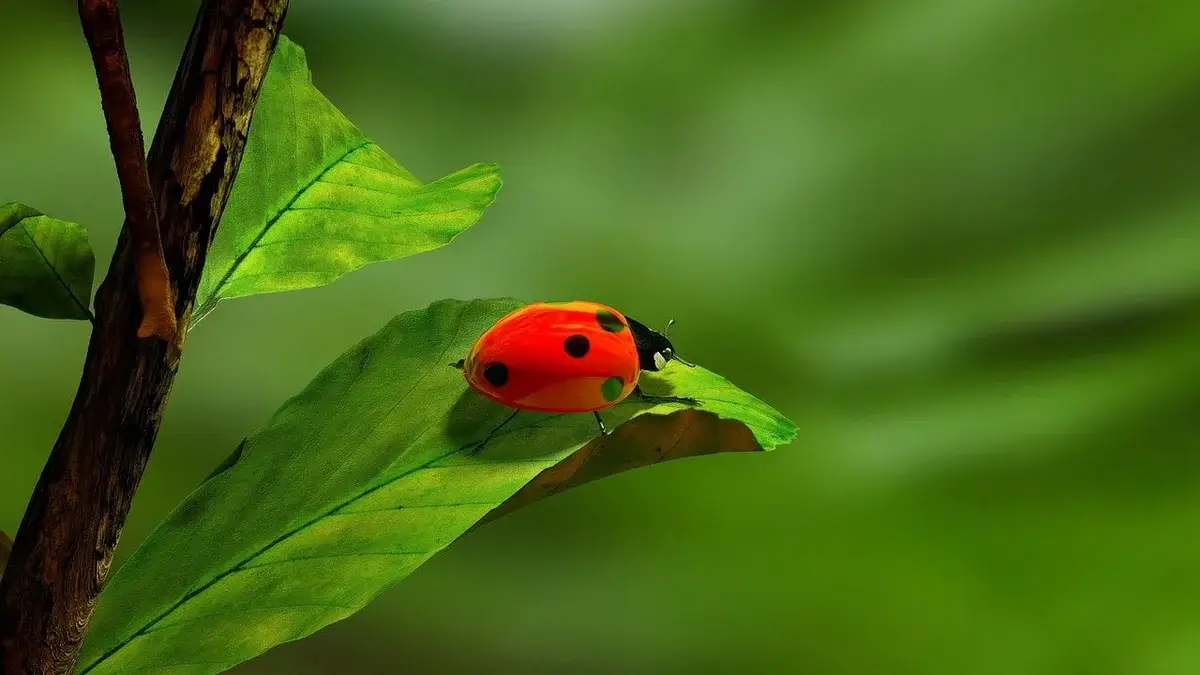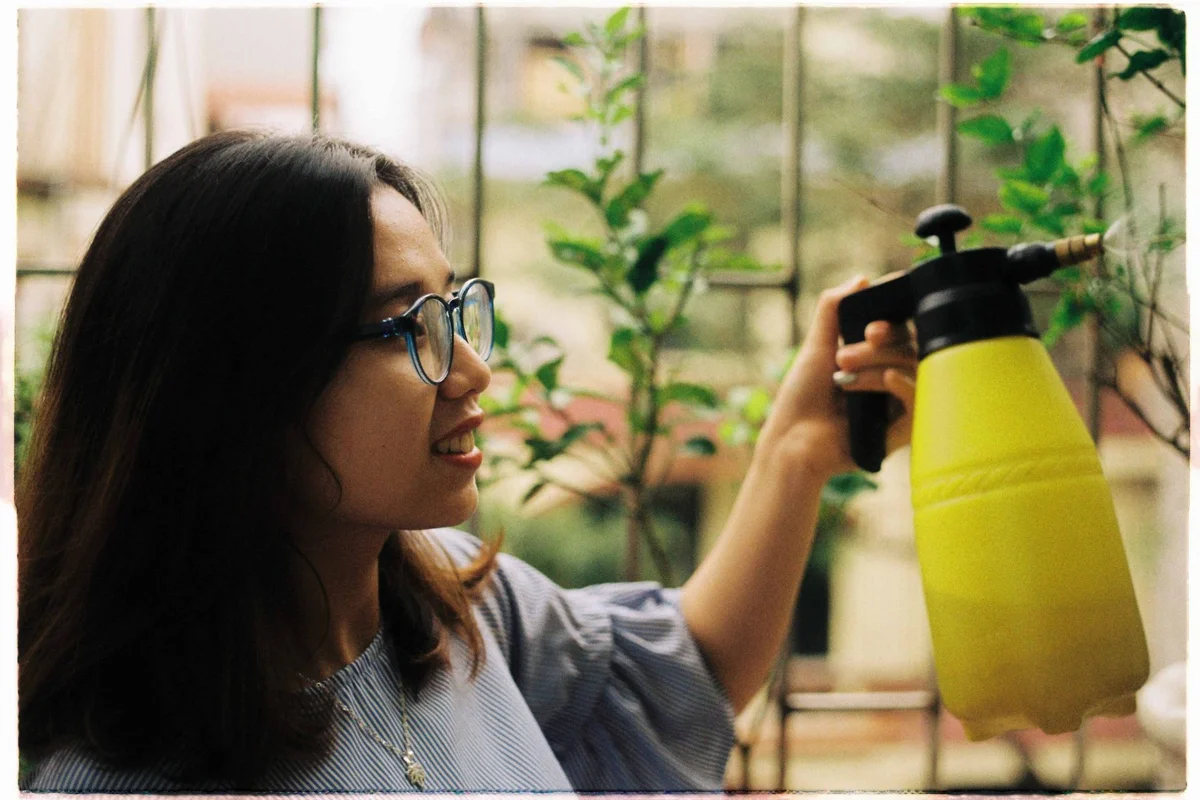How do you control pests without pesticides? It is possible to grow organically with using chemicals? Many home growers turn to growing their own food, not only for the pure enjoyment of it, but also because they want to reduce the amount of food they eat which has been exposed to pesticides.
But without pesticides, how do you stop those annoying pests from eating your precious fruit and vegetables?! In this article we will talk you through how to grow organically without the need for any harmful pesticides.



 Try using some sprays you make yourself to help control pests in your garden. These can kill unwanted creatures, without being harmful to you or the environment.
Here are some homemade remedies you can give a try:
• Get rid of slugs by pouring beer into a small tray and leaving it in your garden.
• Peppermint castile soap. Pour 1 tablespoon of liquid peppermint castile soap into a spray bottle. Add 12 drops of peppermint essential oil and fill the bottle with water. Spray the leaves of your plant in the evening to avoid them getting burnt in the full sun.
• Vegetable oil. To make this natural pesticide combine 1 tablespoon of liquid soap with 1 cup of vegetable oil and shake them together. With a ratio of 2 teaspoons of the oil and soap mix with 4 cups of water, spray the plants on the affected areas.
• Use garlic. Crush a whole garlic bulb and cover with vegetable oil. Leave the mixture to sit for 2 days before straining off the liquid. Add a little liquid soap or dishwashing liquid. Use a ratio of 1 millilitre of garlic mixture to one litre of water.
• Try using eggshell powder. Simple, easy, and cheap to make, using eggshells can help you control your garden pests. Rinse eggshells with water until they are clean from any leftover egg residue. Dry the eggshells by putting them on a paper towel for a few days or on a low temperature in the oven. Crush the shells in a bag or put into a food grinder, until it forms a powder. You can then sprinkle the powder directly onto the pest you are trying to get rid of.
• Tomato spray. Tomato plants hold alkaloids, such as tomatine, and these have been found to help kill aphids and other pests. To make, simply take 2 cups of chopped fresh tomato leaves and combine with 4 cups of water. Let this sit overnight. Then strain the mixture and spray directly onto your plants.
• Neem oil. To make this homemade pesticide combine two teaspoons of neem oil with one teaspoon of mild liquid soap and 4 cups of water. Give it a good shake before spraying onto your plants.
Growing organically and without the use of harmful pesticides can be a great way to produce fresh, healthy fruit and vegetables, and you have the benefit of knowing they are truly 100% organic. By not using pesticides you will not only save money but will also be helping to care for the environment around you, and ensure any other garden creatures are not harmed.
If you are looking to control pests without pesticides, then growing hydroponically is a great option for you. Try out our Mr Stacky pots, which raise the garden off the ground and help to prevent pests and other diseases. We also have lots of growing tips on our site if you need some guidance.
Try using some sprays you make yourself to help control pests in your garden. These can kill unwanted creatures, without being harmful to you or the environment.
Here are some homemade remedies you can give a try:
• Get rid of slugs by pouring beer into a small tray and leaving it in your garden.
• Peppermint castile soap. Pour 1 tablespoon of liquid peppermint castile soap into a spray bottle. Add 12 drops of peppermint essential oil and fill the bottle with water. Spray the leaves of your plant in the evening to avoid them getting burnt in the full sun.
• Vegetable oil. To make this natural pesticide combine 1 tablespoon of liquid soap with 1 cup of vegetable oil and shake them together. With a ratio of 2 teaspoons of the oil and soap mix with 4 cups of water, spray the plants on the affected areas.
• Use garlic. Crush a whole garlic bulb and cover with vegetable oil. Leave the mixture to sit for 2 days before straining off the liquid. Add a little liquid soap or dishwashing liquid. Use a ratio of 1 millilitre of garlic mixture to one litre of water.
• Try using eggshell powder. Simple, easy, and cheap to make, using eggshells can help you control your garden pests. Rinse eggshells with water until they are clean from any leftover egg residue. Dry the eggshells by putting them on a paper towel for a few days or on a low temperature in the oven. Crush the shells in a bag or put into a food grinder, until it forms a powder. You can then sprinkle the powder directly onto the pest you are trying to get rid of.
• Tomato spray. Tomato plants hold alkaloids, such as tomatine, and these have been found to help kill aphids and other pests. To make, simply take 2 cups of chopped fresh tomato leaves and combine with 4 cups of water. Let this sit overnight. Then strain the mixture and spray directly onto your plants.
• Neem oil. To make this homemade pesticide combine two teaspoons of neem oil with one teaspoon of mild liquid soap and 4 cups of water. Give it a good shake before spraying onto your plants.
Growing organically and without the use of harmful pesticides can be a great way to produce fresh, healthy fruit and vegetables, and you have the benefit of knowing they are truly 100% organic. By not using pesticides you will not only save money but will also be helping to care for the environment around you, and ensure any other garden creatures are not harmed.
If you are looking to control pests without pesticides, then growing hydroponically is a great option for you. Try out our Mr Stacky pots, which raise the garden off the ground and help to prevent pests and other diseases. We also have lots of growing tips on our site if you need some guidance.
Firstly, what are the disadvantages of using a pesticide?
One of the main disadvantages of using pesticides is that they can be harmful to the ecosystem. The pesticide used on your plant may also end up killing non-pest organisms and creating an imbalance within the ecosystem. Pesticides can also be transported to other areas from where it was sprayed, for example through water or air. This can end up harming both animals and humans. This could be through poisoning, and the development of certain cancers. Over time the use of pesticides may build up resilience and so the need to use even stronger pesticides takes place. They may end up killing pollinators and other beneficial insects in your garden.Are there any advantages to using pesticide?
Although we often hear about all the negative side effects of pesticides, there are some benefits to using them. Pests can be extremely harmful to a grower crops and for farmers with a large yield, the plants they can save from using pesticides far outweighs how much they would produce without using them. If growers can save more crops from pests, they can sell more and increase productivity. The use of pesticides can also kill any pests that carry disease. This can prevent deaths in humans from these diseases carried by pests (for example malaria can be reduced, as pesticides will kill infected mosquitoes).
How can I control pests without pesticides?
For the home gardener, you can learn how to control pests without pesticides, and it may be easier than first appearances. It can also be hugely rewarding to grow organically. There are plenty of ways to keep pests at bay and growing hydroponically can help even more!Raise your plants off the ground
When you raise your garden above ground, you create a natural barrier that prevents ground pests and diseases to your plants. The raised garden technique is utilized by virtually every hydroponic set-up. Channels, poles, Dutch buckets and raised infrastructure are essential to the design. With your Mr Stacky raised vertical tower garden, modular planters are filled with the growing medium coco coir and stacked vertically over a centre pole. Your yield will quadruple with each vertical stack. A simple drip irrigation line above the plants is connected by a fertiliser injector, and an electric or solar pump feeding each tower with nutrient water. Any water run off can feed a plant at the base or be captured for recirculation. There is usually very little run off, as the system will only water however much is required!
Use the right soil
Some plants require a certain level of pH in the soil and depending on where you live this may be hard to replicate. With hydroponics this becomes easier, using a growing medium as opposed to soil. Coco coir is an excellent growing medium as it can hold up to 22% of oxygen even when fully saturated. Not only can it hold water really well, but it also provides great drainage. When soil does not drain well, water can build up at the bottom, and this can attract pests. By using a free draining soil and monitoring the correct pH levels, you can help control pests without using pesticides.Clear any debris
Fallen rotten fruit, or dead leaves can attract ground pests so make sure you clear the area around your plants to avoid this. Growing vertically can help to minimise the area of soil around your plants, so they have just enough room to grow, without space for debris to form around them.Cover your plants
Use wire or netting as a cover for your plants. This will protect them, as well as providing a physical barrier against pests and animals, such as birds and cats who can eat the fruit. Using a barrier can help prevent pests from reaching your crops and destroying them.Encourage beneficial insects to your garden
Not all animals you will want to get rid of. There are plenty of beneficial animals, bugs, and insects that can help provide great growing conditions for your plants. ‘Good’ bugs and insects such as parasitic wasps, bees and ladybirds can help minimise any unwanted pests by eating them. You can encourage these beneficial bugs to help control pests without pesticides and the bugs do all the hard work for you! To help these good bugs find your garden, plant flowers which they are attracted to or build something they can make a home in. You can build a bee house or use a simple technique of putting bamboo canes together or drilling small holes in a piece of timber. Bees will love to build their home in these small holes.
Do not overwater your plants
Another way to control pests without pesticides is by watching how much you are watering your plants. If they are overwatered, then the soil will stay wet, algae may start to grow on it and your plant may develop root rot. This will encourage pests to your plants, so always check you are not killing them with kindness. Signs of overwatering include soft, drooping leaves, stunted or slow growth, brown wilted leaves, rotting roots, lower leaves start to turn yellow or green soil (which will be algae). Using a growing medium such as coco coir can help provide your plants with good drainage. When growing in soil it can be harder to know when your plants have had enough water. As coco coir holds water well but also allows it to drain, it makes it harder to overwater your plants.Use homemade sprays
 Try using some sprays you make yourself to help control pests in your garden. These can kill unwanted creatures, without being harmful to you or the environment.
Here are some homemade remedies you can give a try:
• Get rid of slugs by pouring beer into a small tray and leaving it in your garden.
• Peppermint castile soap. Pour 1 tablespoon of liquid peppermint castile soap into a spray bottle. Add 12 drops of peppermint essential oil and fill the bottle with water. Spray the leaves of your plant in the evening to avoid them getting burnt in the full sun.
• Vegetable oil. To make this natural pesticide combine 1 tablespoon of liquid soap with 1 cup of vegetable oil and shake them together. With a ratio of 2 teaspoons of the oil and soap mix with 4 cups of water, spray the plants on the affected areas.
• Use garlic. Crush a whole garlic bulb and cover with vegetable oil. Leave the mixture to sit for 2 days before straining off the liquid. Add a little liquid soap or dishwashing liquid. Use a ratio of 1 millilitre of garlic mixture to one litre of water.
• Try using eggshell powder. Simple, easy, and cheap to make, using eggshells can help you control your garden pests. Rinse eggshells with water until they are clean from any leftover egg residue. Dry the eggshells by putting them on a paper towel for a few days or on a low temperature in the oven. Crush the shells in a bag or put into a food grinder, until it forms a powder. You can then sprinkle the powder directly onto the pest you are trying to get rid of.
• Tomato spray. Tomato plants hold alkaloids, such as tomatine, and these have been found to help kill aphids and other pests. To make, simply take 2 cups of chopped fresh tomato leaves and combine with 4 cups of water. Let this sit overnight. Then strain the mixture and spray directly onto your plants.
• Neem oil. To make this homemade pesticide combine two teaspoons of neem oil with one teaspoon of mild liquid soap and 4 cups of water. Give it a good shake before spraying onto your plants.
Growing organically and without the use of harmful pesticides can be a great way to produce fresh, healthy fruit and vegetables, and you have the benefit of knowing they are truly 100% organic. By not using pesticides you will not only save money but will also be helping to care for the environment around you, and ensure any other garden creatures are not harmed.
If you are looking to control pests without pesticides, then growing hydroponically is a great option for you. Try out our Mr Stacky pots, which raise the garden off the ground and help to prevent pests and other diseases. We also have lots of growing tips on our site if you need some guidance.
Try using some sprays you make yourself to help control pests in your garden. These can kill unwanted creatures, without being harmful to you or the environment.
Here are some homemade remedies you can give a try:
• Get rid of slugs by pouring beer into a small tray and leaving it in your garden.
• Peppermint castile soap. Pour 1 tablespoon of liquid peppermint castile soap into a spray bottle. Add 12 drops of peppermint essential oil and fill the bottle with water. Spray the leaves of your plant in the evening to avoid them getting burnt in the full sun.
• Vegetable oil. To make this natural pesticide combine 1 tablespoon of liquid soap with 1 cup of vegetable oil and shake them together. With a ratio of 2 teaspoons of the oil and soap mix with 4 cups of water, spray the plants on the affected areas.
• Use garlic. Crush a whole garlic bulb and cover with vegetable oil. Leave the mixture to sit for 2 days before straining off the liquid. Add a little liquid soap or dishwashing liquid. Use a ratio of 1 millilitre of garlic mixture to one litre of water.
• Try using eggshell powder. Simple, easy, and cheap to make, using eggshells can help you control your garden pests. Rinse eggshells with water until they are clean from any leftover egg residue. Dry the eggshells by putting them on a paper towel for a few days or on a low temperature in the oven. Crush the shells in a bag or put into a food grinder, until it forms a powder. You can then sprinkle the powder directly onto the pest you are trying to get rid of.
• Tomato spray. Tomato plants hold alkaloids, such as tomatine, and these have been found to help kill aphids and other pests. To make, simply take 2 cups of chopped fresh tomato leaves and combine with 4 cups of water. Let this sit overnight. Then strain the mixture and spray directly onto your plants.
• Neem oil. To make this homemade pesticide combine two teaspoons of neem oil with one teaspoon of mild liquid soap and 4 cups of water. Give it a good shake before spraying onto your plants.
Growing organically and without the use of harmful pesticides can be a great way to produce fresh, healthy fruit and vegetables, and you have the benefit of knowing they are truly 100% organic. By not using pesticides you will not only save money but will also be helping to care for the environment around you, and ensure any other garden creatures are not harmed.
If you are looking to control pests without pesticides, then growing hydroponically is a great option for you. Try out our Mr Stacky pots, which raise the garden off the ground and help to prevent pests and other diseases. We also have lots of growing tips on our site if you need some guidance. 
About the Author
Mr Stacky is the leader in Tower Garden Systems in Australia, specializing in commercial hydroponic farming, urban farming & residential vertical gardening.
Find out how he can help you achieve your food production goals. Contact Brian
